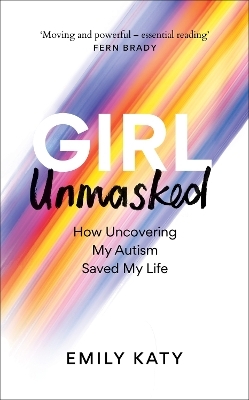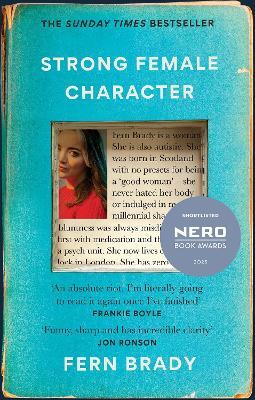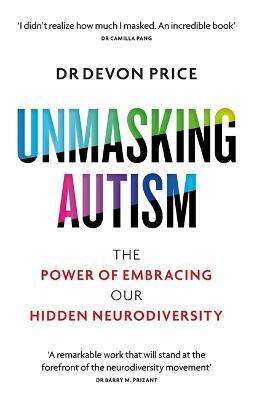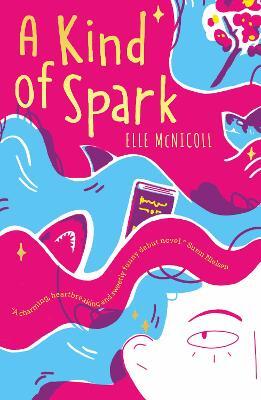This year, World Autism Acceptance Month starts on 2nd April 2025, World Autism Acceptance Day..
Autism is a lifelong developmental condition that can affect how people communicate and interact with other people. Autistic people can also have sensory issues and may find some situations overwhelming and stressful.
As awareness grows, here at LoveReading we are more motivated than ever in supporting this important cause and helping create understanding and acceptance. In a society built to suit neurotypical people, we need to craft something that works for Autistic people rather than them trying to fit into the mould that society laid out for them. A mould which is not fit for purpose. A mould that will break them.
Autistic people face discrimination and barriers across all sectors of society. It is crucial that Autistic people, and their loved ones are supported to overcome these barriers, and are able to find opportunities to explore their interests, develop their skills and build relationships for fulfilled and happy lives.
- Only 29% of Autistic people are in any form of employment
- 70% of Autistic people experience mental health problems
- There are over 150,000 people on the waiting list for an Autism assessment in the UK
And for every visibly Autistic person you meet, there are countless 'masked' people who pass as neurotypical. They don't fit the stereotypical mould of Autism and often spend their entire lives trying to hide their Autistic traits. In particular, there is evidence that Autism remains significantly undiagnosed in women, people of colour, trans and gender nonconforming people.
Books about Unmasking Autism
In recent times there has been an increase in books about unmasking Autism and books which are essential reading for us all if we are to better understand and better support those with Autism. What those with Autism need is a world that recognises them earlier and supports them to build a positive self identity, make adjustments and delivr assistance to help them thrive. The more educated people become about Autism, the less Autistic people will feel they have to mask.
Thanks to Emily Katy, Girl Unmasked delivers a remarkably powerful insight into what it’s like be Autistic, pre and post diagnosis. The older she got, the more Katy realised she was very different until at 16 she was diagnosed as Autistic. This memoir is the story of how she got there and how she very nearly didn’t. It contains themes of self harm, suicide,institutional harm and filicide. This book is at times upsetting but incredibly important. I was shocked, indignant, my pages wet with tears, I read on consumed, scribbled, and made notes, wanting to press it into the hands of people, to help them understand, help us all empathise.

She wrote this book “Because I felt like I had been failed, to some extent. And the more I found out that others were being failed too, the angrier and sadder I became. I just couldn’t leave that be.” This book is for anyone who wants to know more about Autism. It’s for anyone and everyone who wants to try and understand what being Autistic can be like, especially for an Autistic person growing up undiagnosed. It is for Autistic people who are desperate to see themselves.
As an Autistic child, with no understanding of her neural type or sensory difficulties, Katy had no idea that what she was experiencing was not something everyone experienced. The chaos hidden inside her head was invisible and all that was seen was a child,who was obstructive, argumentative, impatient and had a bad temper.
Taking one step at a time was a mantra Katy began to live her life by, because she could no longer predict the panic. She wanted desperately to return to the overly excited Year 7 who won awards and whose name was not known by the entirety of the staff. It’s a must-read book for everyone and anyone. We are thankful that Katy managed to find her authentic self, and that she managed to turn her life around and help others where she had felt failed. This book will save lives. This book will make girls feel seen. This book is hopeful and powerful and delivered with aplomb. Bravo.
Another compelling memoir about being diagnosed with Autism later in life is Fern Brady’s Strong Female Character which is quite simply, unputdownable. Brady tells her no-holds-barred account of living as an undercover undiagnosed Autistic. Brave. Powerful. It's an education. Thank you Fern, we all thank you.

For most Autistics existing in a world
not built for them, anxiety is the baseline
and constant background hum that their daily
life has to play over. Brady had always displayed Autistic traits, had meltdowns, had difficulty understanding the thoughts and feelings of others but she'd never been diagnosed. Until now.
Brady tells us: "If you've ever been on a night out where you got blackout drunk and have laughed the next day as your friends tell you all the stupid stuff you said, that's what being autistic feels like for me: one long blackout night of drinking, except there's no socially sanctioned excuse for your gaffes and no one is laughing."
The vast majority of people's understanding of Autism, are informed by people who are Autism adjacent, rather than the autistics themselves. In Strong Female Character Brady opens the doors to it all. The inability to see shades of grey, the masking, every intensity of interest, every challenge with change, interoception, alexithymia, every shutdown, every meltdown.
Brady takes us on her long journey to diagnosis and her maladaptive coping mechanisms. And what a heartbreaking journey it is when you're unable to translate any social situation and you have no social intuition. From being kicked out of home, to working at strip clubs, University with zero funding, the self-medicating. By the time she was 25, she’d had somewhere in the region of 50 jobs struggling to find her way.
And then she found stand-up. "Everything about my personality made me a problem at university or in most jobs seemed to be treated as some sort of magical power in stand-up."
It wasn’t until Brady was diagnosed and she found a new kind of therapy that involved teaching how to relearn her way of being autistic, which for too long involved her hiding her stress for everyone else’s benefit at the cost of her own health. She's still living with it but is finding her way through, and in this book she disregards the potential judgement and mockery of others to share vital information. "All I can do is keep talking about it and hope you'll then go and make things feel better for the next autistic or misfit girl you meet."
This is such a brave and honest book, we have a front row seat as Brady shares the bleakest parts of her life. What an eye-opening account of living with Autistic Spectrum Disorder. It's razor sharp. It's an education. It gut-punched me. It made me terribly sad. It opened my eyes. But how it made me laugh out loud too. Again and again.
Blending cutting-edge research, personal insights and practical exercises, Dr Devon Price examines the phenomenon of 'masking’ and makes a passionate argument for authenticity and non-conformity. A powerful call for change, Unmasking Autism gifts its readers with the tools to uncover their true selves and build a new society - one where everyone can thrive on their own terms. It’s a book for Autistics specifically, rather than appealing to a neurotypical gaze. It blends cutting-edge research with personal insights, resources and exercises to educate, reflect, support and guide the reader towards building a life without doubt and fear, without being compartmentalised.

“Autism was a shameful, life-ruining condition. Autism made me think of withdrawn, prickly TV characters like Benedict Cumberbatch’s Sherlock, and the Big Bang Theory’s Sheldon. It called to mind non-verbal children who had to wear big clunky headphones to the grocery store and were viewed as objects rather than people. Though I was a psychologist, all I knew about Autism was the broadest and dehumanising of stereotypes. Being Autistic would mean I was broken.” Now a powerful member of the Autism self-advocacy community, Price found lots of people who also discovered their Autism in adulthood after years of confused self-loathing. With this book they hope to help other Autistic people understand themselves, join forces with fellow neurodiverse people and gradually find the confidence to take the masks off.
Books to support parents of neurodivergent children
Better understand the neurodivergent world and become the warrior your child needs with Parenting Different by Sarah Hayden, a compassionate and empowering guide for parents navigating the journey of raising neurodivergent children.
Drawing from her experiences as a social worker, mother of five, and being neurodivergent herself, Hayden offers a blend of professional insight and personal anecdotes that resonate deeply with readers. Without judgement. With love and kindness and empathy. This book genuinely, honestly, passionately and carefully delivers insight and oodles of support to parents navigating their neurodivergent journey.
Children's books with neurodivergent characters
Elle McNicoll, Autistic woman and award-winning author of several books for children has in the past commented: “I will continue to write about neurodivergent people and will never tire of it." In an article with The Bookseller in 2020, children’s author Elle McNicoll shared her experiences about pitching her writing to publishers:
“Those people don’t read books, let alone write them.”
These words were said to me as I sat in a meeting with some respected publishers. I had just explained that my work and research revolved around better representation for disabled and neurodivergent children.
Neurodivergent refers to someone who is autistic, dyspraxic, dyslexic or has ADHD or Tourette’s Syndrome, to name some examples. These conditions are all classified as disabilities.
“Those people." They spoke very freely. Not realising that I am one of “those people”.
I am a neurodivergent writer. And an avid reader. I can count on one hand the number of times I have been recommended a book about someone like me, that has been written by an author like me.
So I wrote my own.
And we are so blessed that Elle did. That children today have a variety of role models and are able to find themselves reflected in books. Her impressive body of work has won countless awards and her debut book A Kind of Spark which won the Waterstones’ Children’s Book Prize and the Blue Peter Book Award has been made into an acclaimed TV series, available on iPlayer.
 Set in a quiet Scottish village, the novel tells the story of Addie, a young autistic girl who uncovers an unsettling secret about her village’s past. McNicoll commented: “I’ve filled the book with all of the pain, hope, frustration, joy, shame and electricity of being a neurodivergent child. It’s incredibly positive. Joyous. But truthful.”
Set in a quiet Scottish village, the novel tells the story of Addie, a young autistic girl who uncovers an unsettling secret about her village’s past. McNicoll commented: “I’ve filled the book with all of the pain, hope, frustration, joy, shame and electricity of being a neurodivergent child. It’s incredibly positive. Joyous. But truthful.”
On winning the Children’s Programme Award at the RTS Programme Awards, McNicoll explained why neurodiverse kids deserve books and shows like A Kind of Spark: “I think these are stories that have been left out of every single kind of media, and arts, from television, films, books. They’ve been left out and these children are the most incredible children. They are the brightest sparks and I love all of our kids that watch the show. This is really a night for them. They deserve to see themselves in fun, sparkling, happy, adventurous, amazingly nuanced stories.”
To celebrate Brady, Katy, Price, Hayden, McNicoll and all of the other authors who are powerful advocates, thank you. Scroll to find a collection of books which educate, inform, support and celebrate Autism and Autistic characters.
If you are looking for children’s books dive into the Collection on our sister site LoveReading4Kids: 40 Children’s Books About Autism or Featuring an Autistic Character
For advice and guidance contact the National Autistic Society on https://www.Autism.org.uk/
World #AutismAcceptanceMonth
#WAAM25
X: @Autism
Instagram: @nationalautisticsociety
Facebook: @NationalAutisticSociety


.jpg)







































Comments (0)
Leave A Reply
You must be logged in to post a comment.